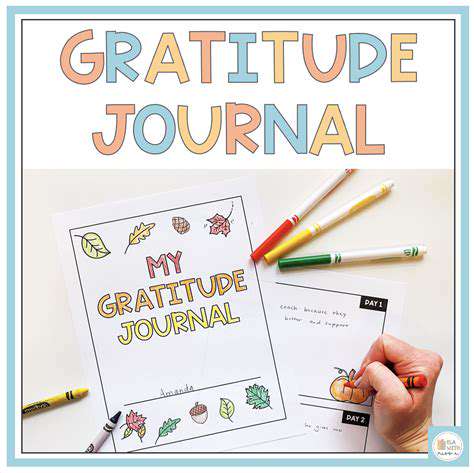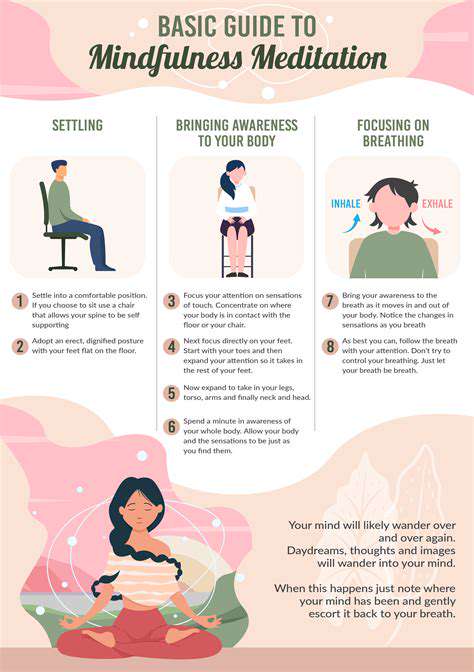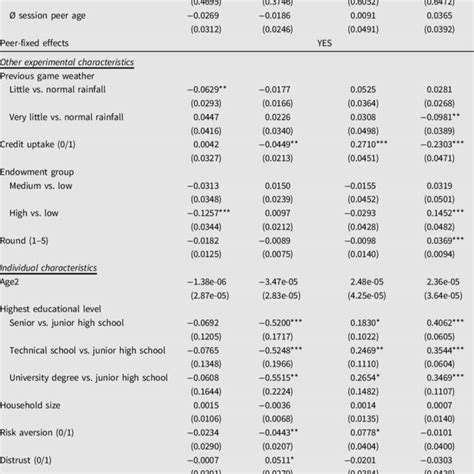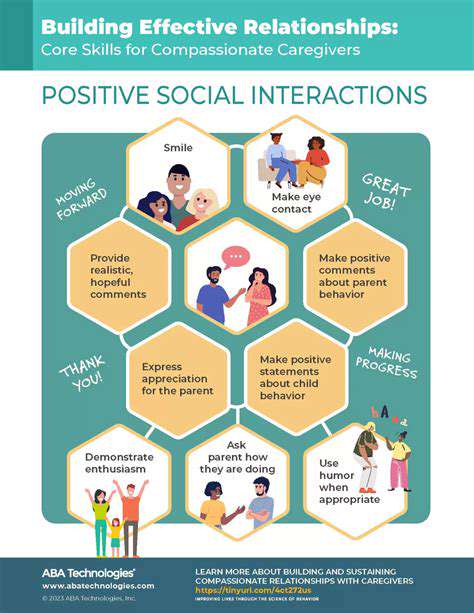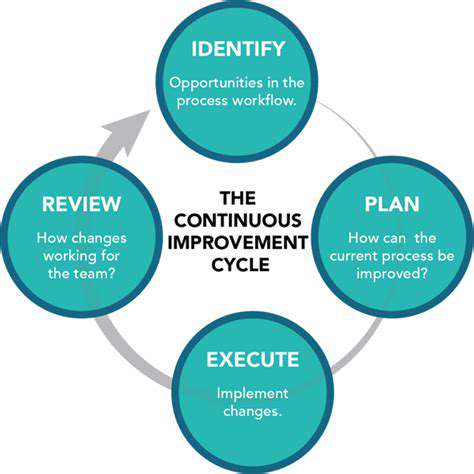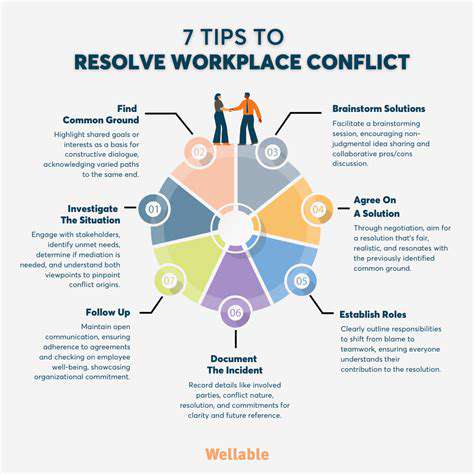Self Care Practices for Parents to Reduce Burnout
Understanding the Importance of Sleep for Parents
Adequate sleep is a cornerstone of parental resilience. When parents consistently prioritize sleep, they equip themselves with the emotional and physical resources needed to navigate the demands of parenthood. A well-rested parent is better equipped to handle stress, respond calmly to challenging situations, and foster a positive and supportive environment for their children. This allows for a healthier family dynamic overall.
Lack of sleep can lead to increased irritability, difficulty concentrating, and reduced patience – all factors that can negatively impact both the parent and the child. Recognizing the significant impact of sleep on parental well-being is the first step towards building resilience.
Establishing a Consistent Sleep Schedule
Creating a regular sleep schedule, both for yourself and your children, can significantly improve sleep quality. This routine helps regulate your body's natural sleep-wake cycle, making it easier to fall asleep and stay asleep. Consistency is key, even on weekends, to avoid disrupting your internal clock.
Establishing a consistent sleep schedule involves setting specific times for bed and wake-up, even on days off. This consistency signals to your body when it's time to rest, leading to more restful sleep.
Creating a Relaxing Bedtime Routine
A calming bedtime routine can signal to your body that it's time to wind down and prepare for sleep. This might involve a warm bath, reading a book, gentle stretching, or listening to calming music. The key is to create a relaxing atmosphere that promotes relaxation and reduces stress.
Avoid screen time before bed, as the blue light emitted from devices can interfere with melatonin production, making it harder to fall asleep. Creating a relaxing bedtime routine that you look forward to is essential for quality sleep.
Managing Stress and Anxiety
Stress and anxiety can significantly impact sleep quality. Identifying and managing these stressors is crucial for improving sleep. Techniques such as mindfulness meditation, deep breathing exercises, or journaling can help you manage stress and promote relaxation before bed.
Taking time for yourself, even just 15 minutes a day, to engage in activities that promote relaxation can significantly reduce stress levels and improve the quality of sleep.
Prioritizing Self-Care Activities
Self-care is essential for maintaining parental resilience. Engaging in activities that nourish your mind, body, and spirit, such as exercise, hobbies, or spending time in nature, can help you recharge and reduce stress. Prioritizing self-care is not selfish; it's essential for your ability to effectively care for others.
Making time for activities that you enjoy, even if it's just for 30 minutes a day, can significantly improve your overall well-being and ability to cope with the demands of parenting.
Seeking Support When Needed
Parenting can be challenging, and it's important to acknowledge that seeking support when needed is a sign of strength, not weakness. Talking to a trusted friend, family member, or therapist can provide valuable perspectives and strategies for managing stress and improving sleep quality.
Connecting with other parents in similar situations through support groups or online forums can provide a sense of community and shared understanding. Don't hesitate to reach out for support when you need it.
The Link Between Sleep and Child Development
A parent's sleep quality is directly correlated with a child's development and well-being. A well-rested parent is better equipped to respond to their child's needs, fostering healthy emotional and behavioral development. Prioritizing sleep for yourself is essential for creating a positive and supportive environment for your child.
Children also benefit from a consistent sleep schedule and relaxing bedtime routine, mimicking the positive effects of these practices on their parents. A well-rested parent creates a more harmonious and supportive home environment for their children.
Mindfulness Moments: Finding Calm in the Chaos

Cultivating Inner Peace
Mindfulness moments are essential for cultivating inner peace. They provide a vital space to disconnect from the relentless demands of daily life and reconnect with your inner self. Taking a few moments to simply observe your breath or sensations in your body can be remarkably effective in reducing stress and anxiety. Recognizing the present moment without judgment allows a sense of calm to settle in.
This practice helps to develop a greater awareness of your thoughts and emotions, fostering a sense of acceptance and reducing reactivity to external stimuli. It's a journey of self-discovery, allowing you to understand your reactions better and respond with greater clarity.
Grounding Techniques
Grounding techniques are powerful tools for managing stress and anxiety. They help you connect with the present moment and bring yourself back to a state of calm. Simple actions like focusing on the textures of objects, noticing the colors around you, or paying attention to your body's physical sensations can be incredibly effective. These techniques are especially helpful during moments of intense emotional distress, providing a sense of stability and control.
Grounding techniques can also be easily incorporated into your daily routine, providing a constant source of inner peace and stability. Practicing these techniques regularly can develop resilience and coping mechanisms in response to challenges. It is a continuous process of self-discovery.
Mindful Breathing Exercises
Mindful breathing exercises are a cornerstone of mindfulness practice. By focusing on the sensation of your breath entering and leaving your body, you can cultivate a sense of presence and awareness. These exercises can help calm the nervous system, reduce racing thoughts, and promote a sense of relaxation.
There are numerous mindful breathing exercises, each with its own unique approach. Experiment with different techniques to find what resonates most with you. The key is to find a consistent practice that you can easily incorporate into your daily routine.
Sensory Awareness
Paying attention to your senses is a powerful way to anchor yourself in the present moment. Notice the sights, sounds, smells, tastes, and textures around you. Engage your senses fully, without judgment, and allow yourself to be fully present in the experience.
This practice can help you appreciate the beauty of the world around you and connect with the simple pleasures in life. It can also be a great way to reduce stress and anxiety by shifting your focus from the future or past to the present.
Mindful Movement
Mindful movement, such as yoga or tai chi, can be incredibly beneficial for finding calm. These practices combine physical postures with mindful breathing, creating a powerful synergy to promote relaxation and reduce stress. Mindful movement helps to cultivate a sense of body awareness and presence, allowing you to connect with your physical sensations and release tension.
Integrating Mindfulness into Daily Life
Integrating mindfulness into your daily life is crucial for sustained benefits. Small, consistent practices are more effective than infrequent, intense sessions. Incorporate mindfulness moments into your routine, such as taking a few minutes to observe your breath before starting your day or during a break at work. This can be a gentle way to start and end your day, fostering a sense of calm and focus. It's about weaving mindfulness into the fabric of your everyday life, not just setting aside specific time for it.
Finding Your Perfect Mindfulness Moment
Ultimately, finding your perfect mindfulness moment is a journey of self-discovery. Experiment with different techniques and find what resonates with you. Whether it's a few deep breaths during a busy day, a walk in nature, or a quiet moment of reflection, the key is to create a consistent practice that fits your lifestyle. Explore various methods to find what works best for you and your unique needs.
The release word can clearly indicate when the dog can move freely.
